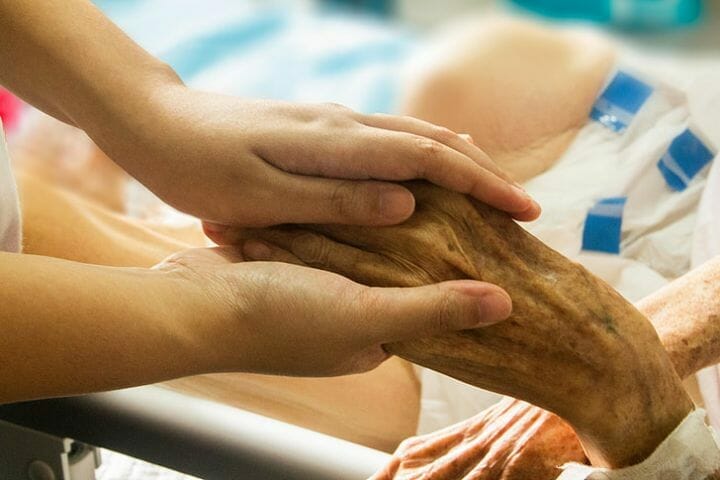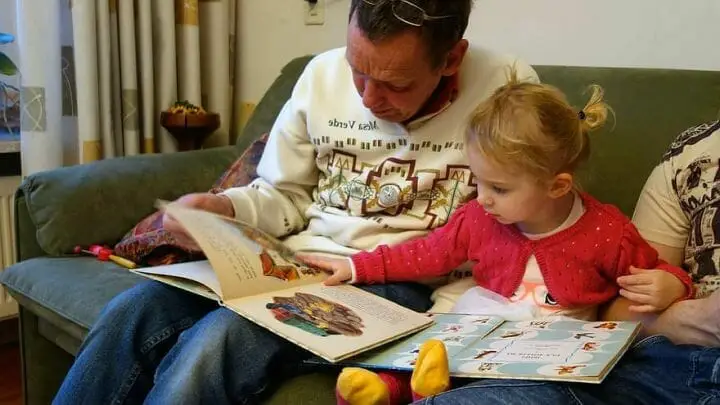Depression is an illness. Not a case of feeling blue, down in the dumps, or out of sorts. It affects people in more ways than just feeling sad, and you just cannot snap out of it.
Of course, feeling tired, grumpy, irritable, and sad are emotions that we all experience commonly. But there are a set of common symptoms associated with this psychiatric disorder.
In this article we are going to identify how to recognize depression among the elderly, what treatments are available for depression in the elderly, and how to help an older adult cope with depression.
Common Causes Of Depression In Elderly People
Causes and risk factors for depression vary among individuals, though there are a common set of factors or a combination of factors that usually help to recognize symptoms of depression in older adults. These could be:
1. Genetic factors
Depression is found to run in families, which means that the risk of inheriting the illness is high when you have close family who have suffered depression in the past.
2. Previous History of Depression
If the person had suffered from depression when they were younger, the chances of depression manifesting in old age are higher.
3. Stress and lack of sleep
Many older adults have a tough time managing stress- it could be due to physical ailments, loneliness, fear of death, lack of motivation and a reduced sense of purpose, isolation, or even financial worries. Heightened stress levels result in disturbed sleep patterns or insomnia. However, chronic insomnia can also increase the risk of depression in susceptible elderly.
4. Poor Health
Chronic pain and medical conditions like Thyroid disorders, Diabetes, Vitamin B 12 deficiency, Parkinson’s disease, Alzheimer’s, Cancer, and Stroke aggravate the issue.
5. Medications/Combinations of medications
Certain medications have been reported to send people, especially older adults spiraling into depression. There are also medication side effects that closely mimic symptoms of depression among senior adults.
6. Substance Use
As with all age groups, elderly people are also adversely affected by excessive drugs and alcohol use. Erratic sleep patterns, diminished appetite, and a host of psychological issues manifest with constant substance use.
7. Brain Chemistry
Brain scans of people with depression show low levels of blood flow and chemical changes [imbalance] in the brain cells, triggering the mental illness.
You may also like How Do Elderly React to Death of Their Significant Other
Symptoms of Depression In The Elderly
Depression in an older adult often goes undiagnosed, mainly because these symptoms are frequently confused with the problems associated with old age. It is vital to understand that depression is not a natural part of old age and that it is best to seek expert help when things seem amiss. Unfortunately, depression in senior adults often goes undetected by the individual themselves as well as their family/friends because they fail to recognize the symptoms.
Depression among seniors differ from depression in younger adults. Sadness may be the prominent factor that is associated with depression, but often, older adults do not exhibit any sadness or grief on their part and claim that they do not feel any such emotion.
However, these are various red flags that help identify depression in older adults:
· Physical pain:
As we said earlier, elderly people may not feel any sadness or despair, but pay attention if they are constantly complaining about physical distress. Restlessness, fatigue, worsening symptoms of arthritis, and constant headaches are tell-tale signs that something’s amiss.
· Lack of motivation and energy to do routine chores:
When an elderly person complains about a lack of energy and motivation to engage in daily chores, it may be that the person is depressed.
· Loss of interest in personal care:
Displaying a lack of interest and enthusiasm in grooming and other activities they otherwise enjoyed doing may often be signs of depression.
What Are the Treatments for Depression in Older Adults?
Even the most severe form of depression can be treated. There is no set treatment pattern because it is determined after a psychological evaluation, and treatment options are varied among individuals, with some cases requiring multiple treatments and therapies.
Treatment for depression in elderly people includes a combination of anti depressants and therapies like Psychotherapy, aka Talk Therapy, Psychodynamic Therapy, Cognitive Therapy, Interpersonal Therapy, and Brain Stimulation therapy.
You may also like What Should Seniors Without Partners Do
How Can You Help An Older Adult Cope With Depression?
It is painful to watch an elderly person struggle with this disorder and the issues that crop up along with it. However, there are ways to help older adults cope with depression and improve their well-being.
1. Ensure That They Follow A Regular Sleep Schedule
A good night’s sleep is important to people of all age groups. A regular sleep schedule is especially vital as you grow older. To make sure that your older adult is getting uninterrupted, restful sleep, ensure that they refrain from afternoon naps or short snoozes during the day. If you can, set a bedtime routine for your loved one and ensure that they follow it daily.
2. Help them connect to a purpose
Often, senior adults display a tendency to brood over the happenings of the past instead of employing their time on an entertaining/productive activity. Spend time with your beloved senior adults, doing crossword puzzles, reading, knitting, or baking. Better yet, entrust them with small, meaningful chores like helping with kids’ homework, watching over your pet, watering a plant, folding the laundry etc. to foster a sense of purpose and meaning in their lives.
3. Boost Social Interaction
Regular visits to check on your elderly ones will make them feel loved and wanted. Encourage your friends and family to visit often and take them out as a group. In the same way, encourage senior adults to visit their friends, take part in community events, and social gatherings to foster connections and keep themselves active and engaged. Engaging in conversation and practicing social skills are factors that help prevent cognitive decline in older adults.
4. Ensure Regular Exercise
Ensure that your loved ones incorporate exercise into their daily routine. If you’re wondering what exercises elderly people can do, walking, gentle stretches, yoga, and ta-chi are age-appropriate exercises that contribute to their health and well-being. Regular exercise enables a senior adult to stay in good shape— physically, mentally, and spiritually.
You may also like How to Help an Elderly Parent Who Refuses Help
5. Know What Foods To Serve The Elderly Patients
Depression can increase an aging person’s risk of heart disease and adversely affects brain health. Include plenty of fruits and vegetables in their diet. Consuming a variety of nutrients, particularly B Vitamins, folates, and Omega 3 Fatty Acids have proved to be successful in deterring late-life depression. If you can, ask them to share their beloved recipes and tweak the ingredients to include these vitamin-rich foods.
6. Show Them That You Care.
Simply put, express your love and concern. Elderly people with depression may be more prone to anxiety, panic attacks, when left alone for extended periods of time. Ensure that you drop in regularly and exchange stories, listen to their fears, and cater to their small whimsies! Remember that nothing cheers up a heavy heart more than a warm, heartfelt hug.
7. Know when to seek help
Finally, keep in mind that your loved one may require expert medical help at times. A mental health professional can help a senior adult suffering from depression feel better with counseling and medicine.
They may need continued therapy for depression, and may also need a caregiver if the situation is out of hand. Learn here how to get in-home counseling for seniors.
The points above are aimed at how you can help a senior adult navigate the pitfalls of depression.
If you are wondering how to improve the mental health of elderly people, there are certain activities that boost psychological health and well-being.
You may also like How to Help Elderly Parents From a Distance?
What Can the Elderly Do to Cope with Depression?
There are some simple things that the elderly can do to help cope with depression. Some of them like playing mind stimulation games can be done alone. Others like volunteering have a community and social aspect to them.
Mind games to stimulate the brain
Solving puzzles, jigsaws, and crosswords, playing vocabulary games, and Sudoku are great ways to stimulate brain activity and instill a healthy competition spirit even among aging seniors. Even time spent coloring or reading books with kids is a great way to boost their spirits.
Journaling
Even a 15-minute session of focused journaling is found to have a significant amount of psychological and even health benefits. Listing down the day’s events, writing down a To-Do list for the next day, and spending time writing down one’s emotions and reactions throughout the day, in the form of a narrative, are great ways to boost one’s mood.
Playing an instrument
Neuroscience says that music stimulates the brain and can help ease depression symptoms and anxiety. Learning to play a new instrument requires controlled physical and mental effort, engaging several muscles at once, and coordination. When a person is learning something new, they are essentially boosting self-confidence and sense of purpose.
Learning to use the latest apps that help connect with loved ones far away or learning to use a camera to capture memories will act as a great source of motivation and improve mood.
You may also like Best Video Calling Device For Elderly
Learning new technology
When a person is learning something new, they are essentially boosting self-confidence and sense of purpose. Learning to use the latest apps that help connect with loved ones far away will act as a great source of motivation and improve mood.
Aerobics
The relationship between physical activity and depression has been researched by many. The findings suggest that exercise may be equally beneficial for depression and that some patients respond more positively to exercise than medication.
Aerobic exercises for seniors include swimming, yoga, pilates, resistance band workouts. These increase cardiovascular strength and boosts energy and endurance.
Aim for 20-30 minutes of light to moderate intensity workouts daily and gradually start introducing bodyweight exercises if possible.
Volunteering
Feeling needed and appreciated vastly improves one’s sense of worth and achievement. Studies show that when an older adult engages in 2-3 hours of volunteering activities per week, there was an improvement in cognitive functions, depression symptoms, and longevity.
While depression can hit anyone at any time, for the elderly, who often tend to be alone, it can be a double whammy. So if you are around the elderly or are a senior yourself, know that just like any illness, it can be worked upon and helped.




